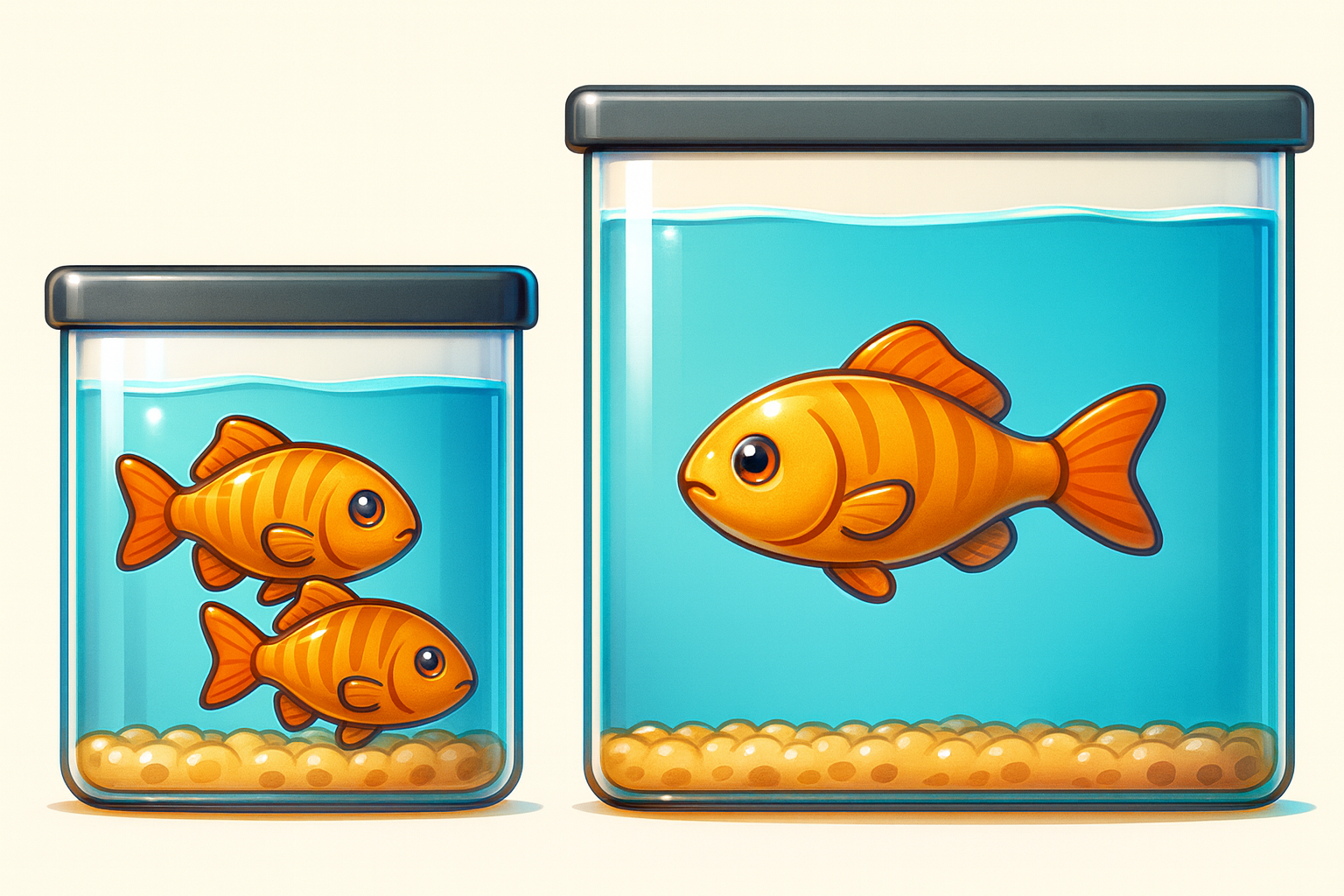What size aquarium should I get?
🐠💧 What Size Aquarium Should I Get? – Complete Guide for Beginners & Experienced Hobbyists
Choosing the right aquarium size is one of the most important decisions in fishkeeping. Your tank size impacts fish health, water stability, maintenance, and your long-term success.
📏🐟 1. Size Affects Everything
The size of an aquarium determines:
- 🐠 Types & Number of Fish you can keep
- ⚙ Filtration System Requirements
- 🌡 Environmental Stability (larger tanks are more stable)
💡 Tip: Bigger is better — larger aquariums are more forgiving of mistakes and less prone to sudden changes in water parameters like temperature or toxins.
🚤🐋 2. Plan for the Fish’s Adult Size
Always choose your tank based on your fish’s full-grown size:
- 🐟 Small Community Fish (tetras, guppies, rasboras) → 10–20 gallons
- 🐠 Medium Fish (angelfish, gouramis, small cichlids) → 30–55 gallons
- 🐡 Large Fish (oscars, common plecos, large cichlids) → 75–125+ gallons
- 🐋 Monster Fish (redtail catfish, pacu, giant gourami, arapaima) → 500–2,000+ gallons
📚🔍 3. Research Before You Buy
Whether you’re new or experienced, always research the fish you plan to buy:
- ❌ Don’t buy a fish just because it looks “cool.”
- 📖 Learn about its care needs, adult size, temperament, and diet.
- 🏡 Consider tank mates and if you can commit to its entire lifespan.
🚫💨 4. Avoid Overcrowding
Too many fish = bad water quality, stressed fish, and disease risk.
🐟 Stock smart to keep your filtration and tank in balance.
💵⚡💧 5. Know the Ongoing Costs
Owning an aquarium means ongoing expenses:
- ⚡ Electricity – filters, lights, heaters, pumps
- 💧 Water – regular water changes
- 🍽 Food – high-quality diets for your fish
- ⏳ Time – maintenance, testing, cleaning
⚠🔋🔌 6. Be Prepared for Emergencies
Power outages can happen anytime — especially during storms or winter. Be ready with:
- 🔋 Battery-powered air pumps
- 🔌 Electric backup air pumps
- ⚙ Generator (best choice for long outages)
These backups keep oxygen flowing and protect your fish during emergencies.
💊🐠 7. Have Medicine Ready
- 🩺 Always keep essential aquarium medications on hand.
- 📦 It’s better to have it and not need it than to need it and not have it.
- ⏱ Treat illnesses as early as possible to prevent losses.
💬🐠 8. Top Questions for New Aquarium Owners
🐟 "What fish can be kept together?"
Compatibility prevents aggression and stress.
🌊 "What water parameters need to be monitored?"
Test ammonia, nitrite, nitrate, and pH regularly.
🍽 "How often and how much should fish be fed?"
Overfeeding causes poor water quality and algae growth.
🌿 "How is algae growth handled?"
Excess algae may mean too much light or poor water conditions.
🩺 "How are fish diseases prevented?"
Clean water, proper care, and quarantining new fish are essential.
🌟📖 9. Never Stop Learning
No matter your experience level, you’re never too old to learn something new. Fishkeeping is an ever-evolving hobby, with new techniques and tools emerging all the time — stay curious, stay informed, and keep improving.
✅ Final Tip: Your aquarium is a living ecosystem — choosing the right size, planning carefully, preparing for emergencies, and treating issues early will keep your fish healthy for years to come.
